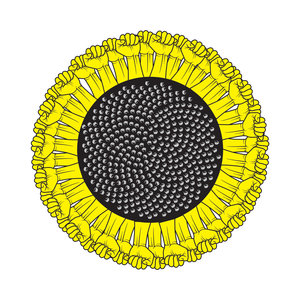Bergamots and Olive Salad for Breakfast
When in Rome, as they say, do as the Romans do. I'm not sure bergamots and olive salad would be considered a traditional breakfast here in Rome, but this morning, it was mine. You see, I was stranded in Rome with a damp suitcase full of worn clothes, It was damp from being stranded earlier in the cold rain by a train that never came. The day I found out that I would here for another week, it was also raining, and on that day I went for my first search for the elusive laundromat around the corner. I never found it while walking in the pouring rain with an umbrella, a paper map, and a paper shopping bag full of clothes. I took yet another walk in the rain this morning to see if the laundromat was open. It wasn't. I've accepted the fact that it's not going to open, and will do the best with washing what I need out in the sink or shower, and hope that they dry. As I mentioned, it's raining and cool here in the Ostia area of Rome, which doesn't lend itself to anything drying out.
Across from where the said laundromat is suppose to be, is a small fruit and vegetable stand. A kilogram of bergamots, which are a unique citrus, an orange that has a yellow skin and flesh and is very fragrant, are 1 euro, or approximately $1.30. That's about $0.65 cents a pound. So, I picked up five of them, along with some tomatoes, and my total cost was 1.31 euro. When I left the stand, I noticed the rain stopped, and I took a walk around to try to find some cheap clothes to hold me over. My suitcase is packed to the gills, and I really don't need any more clothes. I just need some clean ones right now.
As in a lot of city neighborhoods street markets take over areas on certain days. Today, I stumbled onto a market that I hadn't seen before. I saw a lot of used clothing being put out and I thought this was an opportune moment in my day. Luck would have it, it was used clothing from the United States, which meant I could look at tags that had sizes on them that I could recognize. A lot of clothes that get donated to charities and nonprofits are sold to companies that ship them to the rest of the world. And here I am in the rest of the world.
While strolling through the market, I saw an olive vendor. I made note of the different varieties he had, and once I secured something to wear, I would go back and get some olives. As luck would have it, I found a vendor who spoke fluent english and had some new, Italian made sweaters for sale. And, he had my size, which didn't exist in the used clothing piles. I found a an adequate sweater, paid for it, pissed the vendor off because I only wanted one, and went to get me some olives.
I see the olive salad as my best shot at sampling the varieties on hand, and I ask for a kilogram of them. I forgot what the equivalents are of the metric system, don't have wifi on my phone to google, so I asked for one kilogram, which was 6 euros. To my surprise, I have a large quantity of olive salad, approximately 2.2 pounds of it. Had I bought the same olive salad in my neighborhood in New Jersey, it would be double the price. Same thing for the fresh citrus and tomatoes I bought at the fruit and vegetable stand, and the quality wouldn't be as good.
I went back to my hotel room,had breakfast before I did some laundry, which comprised of washing clothes off with water, wringing them out, rolling them up in every available towel, and hanging them around a very small space. They will be wet until I wear them and my body heat dries them out.
While it may not be the most traditional of Roman breakfasts, the fact that foods were sold by street vendors, tells me they are local and traditional foods to this area. While supermarkets sell connivence, street vendors sell authenticity, and in the end, that's what I want in my food.
